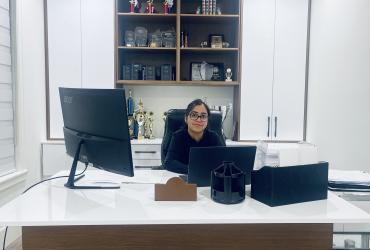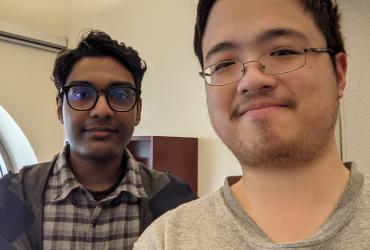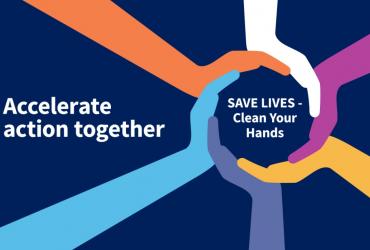Orientation and First Weeks
My experience with the orientation and first weeks of my co-op was quite organized and informative. The Excel file provided by the company was extremely helpful in providing a detailed guidelines for all the training modules I needed to complete. It even included passwords to any software I might need, which made it easy to get started right away.
One of the highlights of the orientation was the mandatory course completions, which were at most 10 minutes long. These courses helped me better understand the company's culture and core values. This was very important to me as it allowed me to align my work with the company's vision and values.
Additionally, I found the person-to-person training on specific software to be very useful. It allowed me to learn about tools like Radar, which are essential to my work. The group training sessions conducted by senior management also gave me a better understanding of the company's overall goals and direction.
During the first week, I attended team meetings where I got to meet different people and teams within the company. This was a great way to get to know my colleagues and understand the various roles within the organization. Overall, the first week was a good balance of orientation and meeting new people.
For future co-op students, I would recommend paying close attention to the training modules and reaching out to colleagues for guidance. It's important to take advantage of the resources provided during the orientation and first weeks, as they can set you up for success (just like they did for me) throughout the rest of your co-op.
Day to Day
My day-to-day routine during my co-op experience was very well-planned and organized.I started my day by checking my email and messages on Microsoft Teams, this ensured that I was up-to-date on any new information or changes that may have occurred overnight. This is an excellent practice to adopt as it allows you to stay informed and avoid any potential issues that may arise later on.
Next, I would check my daily meetings as it is a crucial step to ensure that I am prepared and organized for each meeting. This helped me to make the most out of each meeting and ensure that I was productive throughout the day.
Mapping out my day was also an important step as it helped me to prioritize my work and set achievable goals for each day. This practice can help you to stay focused and ensure that you are on track to meet your project's deadlines. Moreover, setting daily goals helped me to be productive and motivated throughout the day, ensuring that I was making progress toward completing my project.
Finally, asking questions when I was stuck was an essential step to ensure that I am on the right track and that I was not wasting time on something that is not relevant to the project. This practice can also help you to learn from your colleagues and develop your skills further.
Learning and Adaptation
Learning and adaptation were key components of my co-op experience. While the orientation provided me with the necessary tools and resources, it was through on-hands work and asking questions that I was truly able to learn and adapt to my role.
Asking questions, no matter how trivial they may seem, was crucial in helping me understand my responsibilities and navigate through my work. I found that asking for help not only helped me gain knowledge but also allowed me to build strong relationships with my colleagues. They were always willing to assist me and their guidance proved to be invaluable.
In addition to asking questions, finding the right people to get my questions answered was also important. Identifying key individuals who were experts in their respective fields and reaching out to them for guidance helped me understand the nuances of my role better.
For future co-op students, I would recommend keeping an open mind and being receptive to learning opportunities. Asking questions, identifying key individuals for guidance, and collaborating with team members are all important in adapting to a new work environment. It's also important to remember that mistakes are a part of the learning process, so don't be afraid to make them and learn from them. With the right attitude and approach, co-op students can have a successful and rewarding experience.
Accomplishments and Challenges
One of my key accomplishments was finishing a full rate change for three regions on my own, including creating the quote to bind and rate segmentation. This was a significant task that required a lot of effort and attention to detail, but I was able to complete it successfully. Similarly, I was able to complete baseline testing to come up with perfect profiles for future comparisons and debug any inaccurate information such as different rates across all multiple company software and work with other teams to come up with appropriate solutions, which was another significant accomplishment.
However, along the way, I faced several challenges. One of the most significant was my lack of efficiency in using certain software, such as Excel and Radar. This was a significant hurdle, as these programs were essential to my work. I overcame this challenge by seeking help from my colleagues and practicing my skills to improve my efficiency.
Another challenge I faced was communication difficulties with non-actuarial colleagues. As an actuarial student, it was challenging to communicate complex concepts and ideas to those who did not have the same technical background. To overcome this challenge, I had to learn how to communicate my thoughts more efficiently, using clear descriptions and simple language.
In conclusion, my co-op experience was both challenging and rewarding. While I faced several obstacles along the way, I was able to overcome them and accomplish a great deal. My advice to future co-op students would be to stay positive, seek help when needed, and keep practicing their skills to improve their efficiency. Finally, learning how to communicate complex concepts in a clear and straightforward manner is a crucial skill that can greatly benefit any co-op student.















